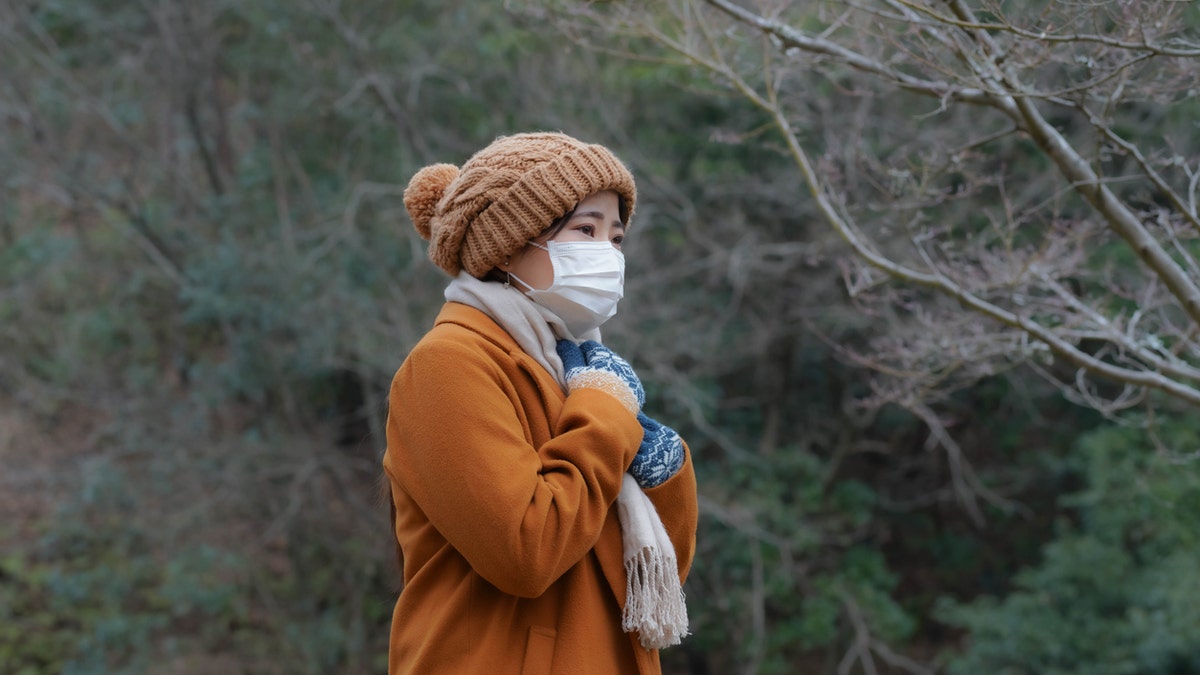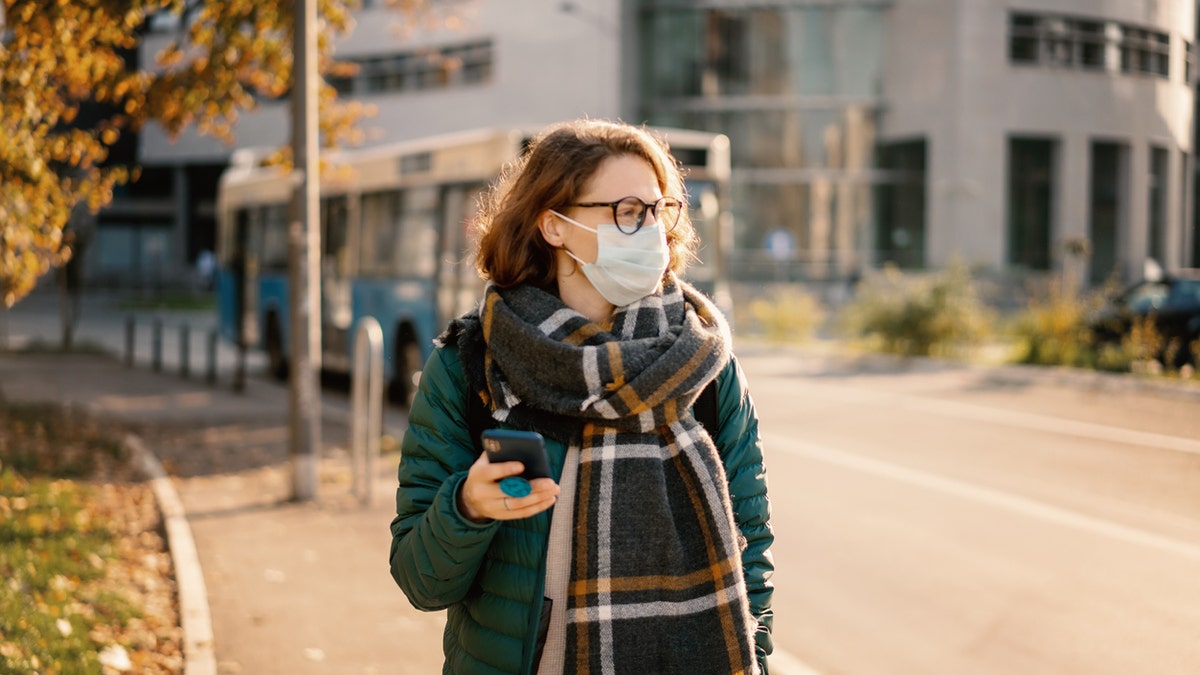Fox News Flash top headlines for December 8
Fox News Flash top headlines are here. Check out what's clicking on Foxnews.com.
As Americans across the country brace themselves for wintry weather in the coming weeks, health officials warn that ditching a face mask in favor of bundling up with a winter scarf won’t stop the spread of the novel coronavirus.
Top medical experts told Fox News that a snug fit is among the most important factors when considering a coronavirus face mask. In fact, the Centers for Disease Control and Prevention (CDC) specifically recommends “non-valved multi-layer cloth masks, to prevent transmission of SARS-CoV-2," per its web page.
“A winter scarf is not a replacement for a facemask,” Christopher Sulmonte, project administrator with Johns Hopkins Medicine Bio-Containment Unit, wrote in an emailed statement.
"Upwards of 80% blockage has been achieved in human experiments that have measured blocking of all respiratory droplets, with cloth masks in some studies performing on par with surgical masks as barriers for source control," reads the CDC web page.
PFIZER'S CORONAVIRUS VACCINE POISED FOR FDA OK FOR EMERGENCY USE, DOCUMENTS SIGNAL

iStock
DON'T HUG LOVED ONES THIS HOLIDAY SEASON, WARNS WHO
Sulmonte mentioned three must-haves when it comes to choosing an effective face covering: fit, frequency and function. Fit refers to the coverage of the mask on a person’s face, while frequency is the duration worn, and function refers to the mask’s material.
“Winter scarfs can commonly be a single-layered or made of a thinner material compared to a two-layer cotton facemask,” Sulmonte continued. “Even if wrapped, it’s possible that not all breathable surfaces would be multilayer or would cover the nose to chin without gaps.
"A two-layer cotton facemask addresses both of these concerns in terms of function and fit. Additionally, in terms of frequency, a facemask can be worn for the required duration, it’s needed both outside AND inside, as compared to a winter scarf which [is] generally worn outside.”
CORONAVIRUS-RELATED FACE MASKS PROTECT THE WEARER, TOO: CDC SAYS IN UPDATED GUIDANCE

iStock
According to some experts, including Dr. Joseph Khabbaza, a critical care specialist at Cleveland Clinic, winter scarves may be on par with neck gaiters in terms of inefficacy.
“Thin masks that are one layer, like neck gaiters, may paradoxically lead to the production of more smaller droplets as large droplets are broken up as they pass through the single layer,” Khabbaza wrote in an email. “Additionally, a scarf or neck gaiter are more likely to get wet which would make them ineffective as a mask at that point.”
Likewise, Dr. Dean Winslow, an infectious disease physician at Stanford Health Care, recommended a surgical face mask or a multi-layered cloth mask.
“Both should fit well and cover the nose and mouth,” Winslow said in an email. “N95 masks are the most efficient in reducing particle generation (and protecting the wearer as well) but I can tell you from wearing them a lot in the hospital and in our COVID-19 clinic, that they are very uncomfortable when you have to wear them for more than a few minutes at a time."
UK'S CORONAVIRUS VACCINE CARD NOT A SO-CALLED 'PASSPORT,' OFFICIALS SAY
Finally, Dr. Aditya Shah from the infectious disease division at Mayo Clinic also emphasized the importance of a mask with a snug fit.
Shah noted that a winter scarf wrapped around the face still leaves gaps, and therefore there is the potential for respiratory droplets to escape from the nose and mouth and spread outward into the surrounding environment.
“This would then mean those around the wearer being susceptible to exposure. Hence a face mask is recommended, which completely covers and snugly fits around mouth and nose,” Shah concluded.





















